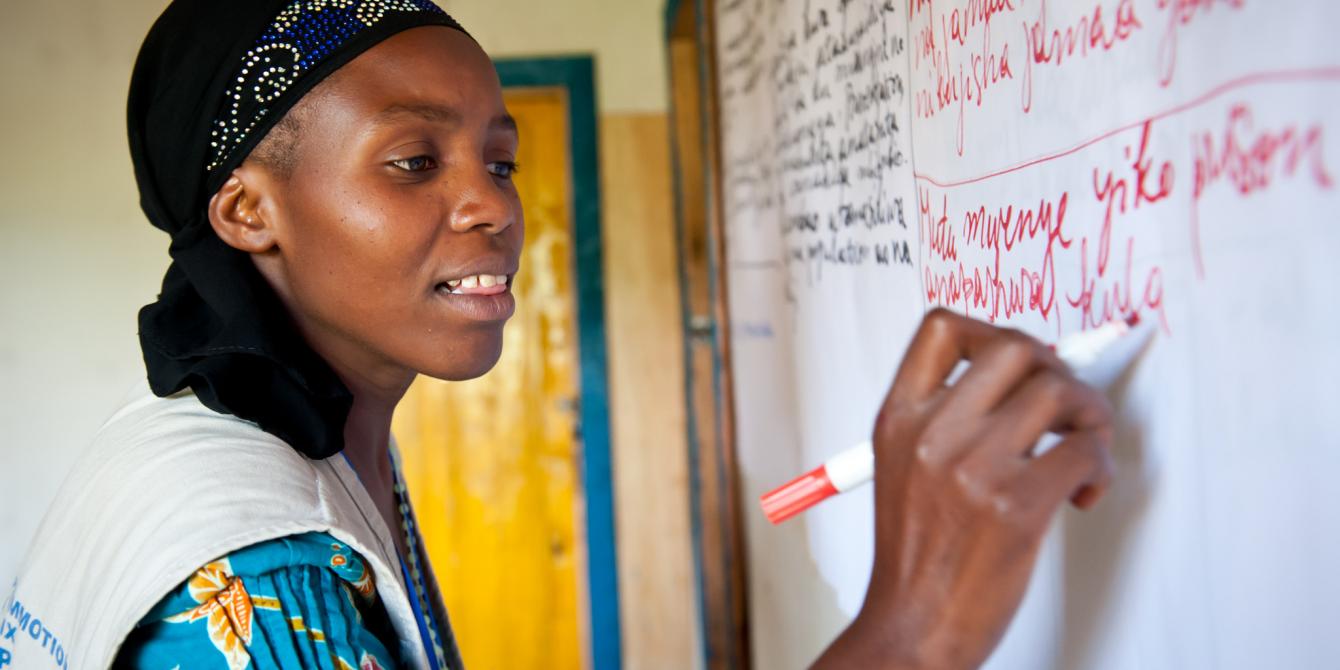Protection

Women and girls at most risk
Natural and man-made emergencies in the region have exacerbated protection issues particularly for women and girls who are exposed to different risks such as harassment, sexual violence as well as early and forced marriage. We are committed to improving the protection situation of vulnerable populations by ensuring that all our humanitarian programming reduces risk and supports community-based protection mechanisms by integrating activities such as information dissemination on rights and entitlements as well as referrals to protection services.
Working with others
In partnership with local organizations, authorities and security services, Oxfam implements stand-alone projects in South Sudan, DRC, and Uganda to help people secure their basic rights to be protected in humanitarian situations. The main objectives of our protection work are:
- support women and men to identify protection risks, and to take lawful measures to mitigate them. Actions might include sharing information on dangerous locations to help people avoid risks; moving in groups to collect firewood or water, or to go to market; or raising awareness on subjects such as positive discipline to reduce incidences of children being beaten ;
- improve access to medical, psychosocial and legal services, so that those who have been affected by Protection risks are able to find timely assistance;
- improve relations and engagement between affected women and men and the authorities who are responsible for protecting them.
In all of this, we promote women's leadership and a solid gender analysis.
Oxfam believes strongly in local humanitarian leadership and is part and parcel of global initiatives that champion this such as the START Protection in Practice project, which provides specific funding for learning and capacity building around humanitarian protection in emergencies, and the ELNHA (Enhancing Local and National Humanitarian Action) Project, which works with local humanitarian actors to strengthen their role in response work.

 Follow us on Facebook
Follow us on Facebook Follow us on Twitter
Follow us on Twitter